We are guided by an expert Editorial Board of outstanding chemists and chemical engineers, ensuring that Reaction Chemistry & Engineering is truly the home for world leading research spanning multiple disciplines and scales, and that your submitted manuscripts are in safe hands.
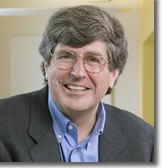 Klavs Jensen is the chair of the Editorial Board and a Professor in the Department of Chemical Engineering at Massachusetts Institute of Technology, USA. His research interests include chemical synthesis in microreactors, which allow for precise control over a greater range of operating conditions compared to traditional reactor designs. He also works on microfabrication techniques for a range of materials and devices, from microbiosystems to advanced nanomaterials. Check out his latest ChemComm paper:
Klavs Jensen is the chair of the Editorial Board and a Professor in the Department of Chemical Engineering at Massachusetts Institute of Technology, USA. His research interests include chemical synthesis in microreactors, which allow for precise control over a greater range of operating conditions compared to traditional reactor designs. He also works on microfabrication techniques for a range of materials and devices, from microbiosystems to advanced nanomaterials. Check out his latest ChemComm paper:
Oscillatory three-phase flow reactor for studies of bi-phasic catalytic reactions, Milad Abolhasani, Nicholas C. Bruno and Klavs F. Jensen, Chem. Commun., 2015, 51, 8916.
Professor Jensen was named one of the One Hundred Chemical Engineers of the Modern Era as part of the American Institute of Chemical Engineers’ (AIChE) centennial celebrations. In 2012 he was the first recipient of the IUPAC-ThalesNano Prize in Flow Chemistry.
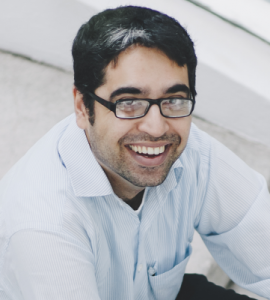 Saif Khan is an Associate Professor in the Department of Chemical and Biomolecular Engineering at the National University of Singapore, Singapore, and a Scientific Editor for Reaction Chemistry & Engineering, helping to ensure that articles meet the stringent criteria required for publication in the journal. He works on the design and analysis of chemical reactors which perhaps go beyond the familiar – think reactions in bubbles, droplets and foams. His platform of choice is microfluidic systems, which allow the control of transport properties and non-equilibrium conditions for efficient, economical and sustainable chemical synthesis. His recent Green Chemistry paper is in this area:
Saif Khan is an Associate Professor in the Department of Chemical and Biomolecular Engineering at the National University of Singapore, Singapore, and a Scientific Editor for Reaction Chemistry & Engineering, helping to ensure that articles meet the stringent criteria required for publication in the journal. He works on the design and analysis of chemical reactors which perhaps go beyond the familiar – think reactions in bubbles, droplets and foams. His platform of choice is microfluidic systems, which allow the control of transport properties and non-equilibrium conditions for efficient, economical and sustainable chemical synthesis. His recent Green Chemistry paper is in this area:
Rapid nanoparticle-catalyzed hydrogenations in triphasic millireactors with facile catalyst recovery, Swee Kun Yap, Yuan Yuan, Lu Zheng, Wai Kuan Wong, Jiaguang Zhang, Ning Yan and Saif A. Khan, Green Chem., 2014, 16, 4654.
Dr Khan was a R. T. Haslam Presidential Fellow at MIT prior to moving to Singapore.
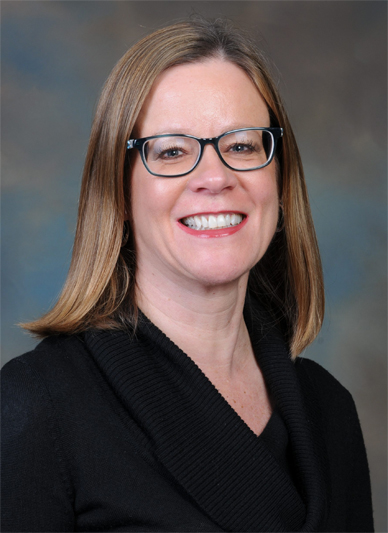 Donna Blackmond is a Professor in the Department of Chemistry at The Scripps Research Institute, USA, and a Reaction Chemistry & Engineering Editorial Board member. Her research focusses on kinetic and mechanistic investigations of asymmetric catalytic reactions, probing the origin of biological homochirality or developing understanding of crucial synthetic pathways for pharmaceutical production, as in her recent Catalysis Science & Technology paper:
Donna Blackmond is a Professor in the Department of Chemistry at The Scripps Research Institute, USA, and a Reaction Chemistry & Engineering Editorial Board member. Her research focusses on kinetic and mechanistic investigations of asymmetric catalytic reactions, probing the origin of biological homochirality or developing understanding of crucial synthetic pathways for pharmaceutical production, as in her recent Catalysis Science & Technology paper:
The role of reversibility in the enantioselective conjugate addition of α,α-disubstituted aldehydes to nitro-olefins catalyzed by primary amine thioureas, Yining Ji and Donna G. Blackmond, Catal. Sci. Technol., 2014, 4, 3505–3509.
In 2013, Professor Blackmond was elected to the US National Academy of Engineering, and she is also an investigator in the Simons Collaboration on the Origins of Life.
 Mark Davis is a Professor in the Department of Chemical Engineering at the California Institute of Technology, USA, and a Reaction Chemistry & Engineering Editorial Board member. His current research interests lie in the distinct areas of catalytic materials and macromolecular therapeutics design, united by the common themes of synthetic chemistry and analytical engineering problem solving. His latest paper on the synthesis of zeolites for use in catalytic applications can be found in Journal of Materials Chemistry A:
Mark Davis is a Professor in the Department of Chemical Engineering at the California Institute of Technology, USA, and a Reaction Chemistry & Engineering Editorial Board member. His current research interests lie in the distinct areas of catalytic materials and macromolecular therapeutics design, united by the common themes of synthetic chemistry and analytical engineering problem solving. His latest paper on the synthesis of zeolites for use in catalytic applications can be found in Journal of Materials Chemistry A:
High-silica, heulandite-type zeolites prepared by direct synthesis and topotactic condensation, Joel E. Schmidt, Dan Xie and Mark E. Davis, J. Mater. Chem. A, 2015, 3, 12890–12897.
In 2014, Professor Davis was awarded the Prince of Asturias Award for Technical and Scientific Research with Avelino Corma and Galen D. Stucky.
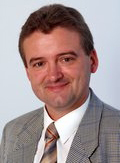 Volker Hessel is a Professor in the Department of Chemical Engineering and Chemistry at Eindhoven University of Technology, Netherlands, and a Reaction Chemistry & Engineering Editorial Board member. He is Chair of the Micro Flow Chemistry and Process Technology group, focussing on chemical and process intensification in micro and flow reactors, and the design and use of new reactions to enable process development. Take a look at his recent paper in Green Chemistry:
Volker Hessel is a Professor in the Department of Chemical Engineering and Chemistry at Eindhoven University of Technology, Netherlands, and a Reaction Chemistry & Engineering Editorial Board member. He is Chair of the Micro Flow Chemistry and Process Technology group, focussing on chemical and process intensification in micro and flow reactors, and the design and use of new reactions to enable process development. Take a look at his recent paper in Green Chemistry:
Separation/recycling methods for homogeneous transition metal catalysts in continuous flow, Iris Vural Gürsel, Timothy Noël, Qi Wang and Volker Hessel, Green Chem., 2015, 17, 2012–2026.
Professor Hessel is involved with several large scale EU projects and is a previous winner of the AIChE award for Excellence in Process Development Research.
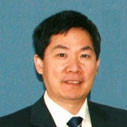 Guangsheng Luo is a Professor in the Department of Chemical Engineering at Tsinghua University, China, and a Reaction Chemistry & Engineering Editorial Board member. He studies the behaviour of chemical reaction systems on a micro-scale, in order to develop efficient, safe and environmentally friendly chemical processes. He is also interested in separation technologies and the large scale production of functional materials. His scalable nano-precipitation method was published last year in Soft Matter:
Guangsheng Luo is a Professor in the Department of Chemical Engineering at Tsinghua University, China, and a Reaction Chemistry & Engineering Editorial Board member. He studies the behaviour of chemical reaction systems on a micro-scale, in order to develop efficient, safe and environmentally friendly chemical processes. He is also interested in separation technologies and the large scale production of functional materials. His scalable nano-precipitation method was published last year in Soft Matter:
Modified nanoprecipitation method for polysulfone nanoparticles preparation, Y. Liu, Y. C. Lu and G. S. Luo, Soft Matter, 2014, 10, 3414–3420.
Professor Luo is the director of the State Key Laboratory of Chemical Engineering.
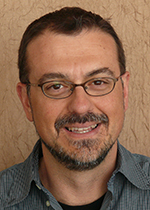 Dionisios Vlachos is a professor in the Department of Chemical & Biomolecular Engineering at the University of Delaware, USA, and a Reaction Chemistry & Engineering Editorial Board member. His research involves a combination of modelling, simulation and experimental validation for a variety of applications, including understanding catalytic reaction mechanisms and designing chemical reactors and functional materials, leading ultimately to better and safer chemical processes. Read his paper in Physical Chemistry Chemical Physics on the Cr(III) catalyzed isomerization mechanism of glucose to fructose:
Dionisios Vlachos is a professor in the Department of Chemical & Biomolecular Engineering at the University of Delaware, USA, and a Reaction Chemistry & Engineering Editorial Board member. His research involves a combination of modelling, simulation and experimental validation for a variety of applications, including understanding catalytic reaction mechanisms and designing chemical reactors and functional materials, leading ultimately to better and safer chemical processes. Read his paper in Physical Chemistry Chemical Physics on the Cr(III) catalyzed isomerization mechanism of glucose to fructose:
Insights into the Cr(III) catalyzed isomerization mechanism of glucose to fructose in the presence of water using ab initio molecular dynamics, Samir H. Mushrif, Jithin J. Varghese and Dionisios G. Vlachos, Phys. Chem. Chem. Phys., 2014, 16, 19564–19572.
Professor Vlachos is a previous winner of the AIChE R. H. Wilhelm Award in Chemical Reaction Engineering and is a fellow of the American Association for the Advancement of Science.
To keep up with the news from Reaction Chemistry & Engineering, including the latest Editorial Board appointments, be sure to sign up to our e-alerts and follow us on Twitter.










